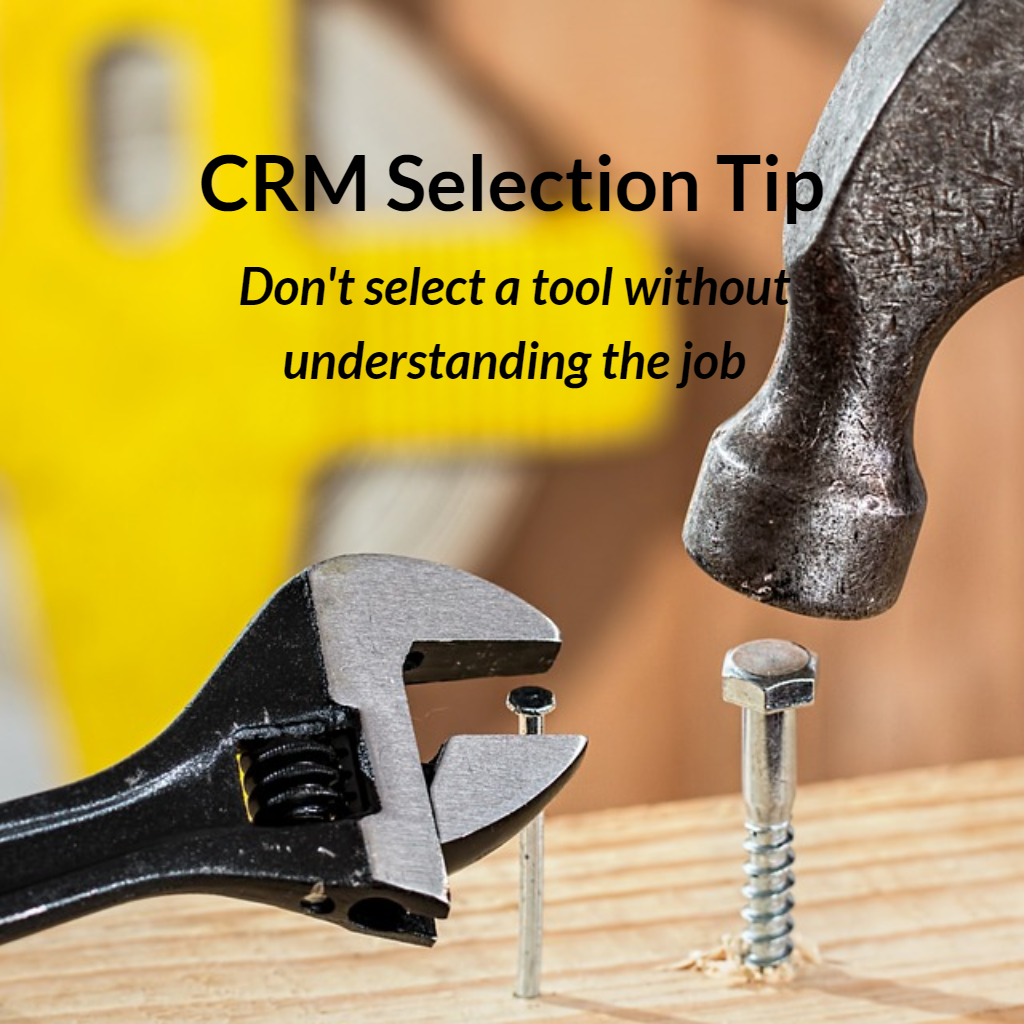Select a CRM Software Company – Not a CRM Software Product
Selecting the right CRM system for your business can be challenging. There are literally hundreds of solutions available from free and open source programs to ones costing well over $100 dollars per user per month. So, what’s the best way to go about selecting the right solution for your business? Well, it is important to start with why do you need a CRM solution?
What specifically does it need to do?
What are the requirements to ensure the proper implementation of the system and its use?
What are the criteria to measure the return on your investment?
One of the reasons so many companies fail to get the CRM system they selected implemented and utilized is because the initial selection process is often flawed.
Here is what typically happens. Management has decided they need a CRM system to streamline their internal processes and increase communication within their firm, so they assign someone to take charge of the project. This individual begins to talk with the internal staff so that he or she can document all the features and functions they need in the CRM system. Once that is complete they select a group of vendors and ask for a free trial or product demonstration. After a few weeks of evaluations, the project manager has a recommendation which is based primarily on selecting the product that meets as many of their functional requirements at the lowest cost. This is where the process breaks down and why the number of CRM systems that fail to get properly implemented and utilized (according to industry experts) is a whopping 73 percent.
What differentiates the myriad of solutions to choose from is not just the product’s features and functions, but more importantly the value-added services the CRM solution provider can deliver to ensure the successful implementation and use of the product. CRM software is a resource intensive solution that requires proper planning, management commitment, implementation procedures, data migration, customization, training of the staff and more. These areas are often overlooked during the vendor selection process because people tend to focus all their attention on features, functions and price. As a result, they select what they believe is the right product, but the implementation fails.
I think it’s fair to say that at the most basic level CRM software has become a commodity. Most of the companies offer the ability to manage accounts or customers, people or contacts, activities, notes and perhaps a sales forecast, but even at this level there is a high degree of customer/vendor interaction that is required for the successful implementation and use of the software. With more advanced solutions the commitment to preparing for and managing the implementation is even greater. The problem here is that many companies are just not prepared for this and nor is the CRM solution provider they selected. So now you have a situation whereby you are not prepared to commit the time and resources to the implementation, and the solution provider you selected cannot offer any assistance.
This is why it is so important to select a CRM company and not just a CRM product. A CRM company will have a documented implementation plan and resources that can guide you through the steps required for you to be successful. Training is provided by experts in sales, marketing and customer service, not just a list of videos for your staff to review at their leisure. A CRM company will provide phone support and assign an account manager to call, not suggest you send an e-mail and wait 48 hours for a response. If you believe as many do that CRM solutions are all pretty much the same, then it’s time to turn the standard vendor selection process upside down and focus on selecting the right CRM company versus the right CRM product.
This article is sponsored by Commence Corporation, manufacturers of Commence CRM. The company provides a robust CRM solution coupled with consultative services for the proper implementation and use of CRM software.
source http://www.commence.com/blog/2018/04/27/looking-for-crm-solution-for-your-business/




